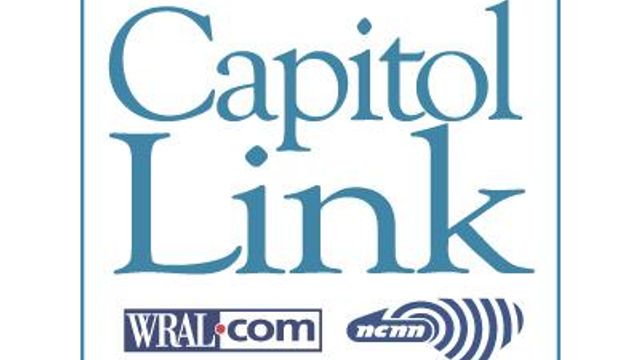Vote on State Budget Likely This Weekend
Lawmakers are expected to take the first of two votes needed to approve a $20 billion spending plan Friday. It would phase out county Medicaid expenses and make a "temporary" sales tax increase permanent.
Posted — UpdatedHouse and Senate negotiators tentatively agreed late Wednesday to a tax-and-spending plan for the next two years that also would phase out county Medicaid expenses, make permanent a "temporary" sales tax increase and spend or borrow $860 million for state buildings, sewer lines and land conservation.
House Democrats, who got most of what they wanted on tax issues, were confident Thursday that more than 61 of their members - a majority in the chamber - would vote for the final plan. Senators, in return, get the top income tax rate lowered, a long-term solution to Medicaid and a dedicated cancer research fund.
"I think it's a fair compromise," House Speaker Joe Hackney, D-Orange, said shortly after a House Democratic Caucus meeting.
But it took Senate Democratic leaders a little longer to make similar statements.
They had to deal with colleagues still unhappy with a provision that would let counties, with local voter approval, collect an additional 0.4 percentage point on the value of land and home sales. Senate Democrats rejected a nearly identical tax deal late last month largely due to the transfer tax, which was sought strongly by the House.
Senate Leader Marc Basnight, D-Dare, said late last week that as many as 24 of the Senate's 31 Democratic members support the transfer tax idea. Emerging from a 90-minute caucus meeting Thursday night, Basnight said he now had enough support for a majority in his chamber.
"It will be voted on and the budget bill will pass," Basnight told reporters.
Sen. David Hoyle, D-Gaston, co-chairman of the Senate Finance Committee, said he would probably vote for the budget, although he's averse to the transfer tax idea.
"I don't like it, but that's what it's going to be," he said.
Time is running out for lawmakers to pass the final budget, as a stopgap spending measure for state government expires Tuesday. Negotiators were working out final details late Thursday. The budget bill will likely be ready for the first of two required votes in each chamber Saturday, with the final votes coming after midnight.
The deal would let counties raise either sales taxes by a quarter of a cent or the land transfer tax from 0.2 percent of the sales price to 0.6 percent - an additional $800 on a $200,000 home. Proceeds could be used for school construction or other infrastructure needs.
The North Carolina Association of Realtors scrambled Thursday to try to get lawmakers to reconsider their inclusion of the transfer tax. The association has spent nearly $600,000 this year on a public campaign opposing what it called the "NC Home Tax," arguing it would whittle down the affordability of homes.
"We feel confident that if the ... General Assembly were allowed to consider this issue as a stand-alone issue, it would fail," association chief executive Tim Kent said.
"What we're trying to do is give the counties an option so they can cover their costs," said Rep. Jim Crawford, D-Granville.
Incorporating the local tax options in the budget may give political cover to undecided lawmakers who would find it difficult to vote against the most important bill of the year.
"Some people are not going to be happy, but they go home and say, 'I didn't want this, but how could I vote against my university getting a new building they so desperately needed or I supported teacher raises and I support insurance for children,'" said Sen. Linda Garrou, D-Forsyth, one of the chief budget negotiators.
Gov. Mike Easley, another Democrat, sounds like he would sign the deal into law. Easley spokesman Seth Effron referred to the agreement as "an outstanding budget."
Easley got several items he wanted, including money to pay for 10,000 additional children in More at Four and flexibility to let lottery commission officials raise prize payouts to boost lagging ticket sales.
Under the tentative agreement, a quarter penny of the sales tax originally set to expire in 2003 would become permanent, while the top income tax bracket of 8 percent for the highest wage-earners would expire as scheduled at the end of the year, making the top rate 7.75 percent.
The deal would mean the sales tax most consumers pay would remain at 6.75 percent, although counties could raise the overall rate to 7 percent. A state version of the earned income tax credit also would be enacted.
Republican legislators, the minority party in both chambers, sound ready to oppose the budget because of what they consider to be tax increases.
"It may be a different pocket, but it's still coming out of the same pants of the taxpayer," said Rep. Nelson Dollar, R-Wake.
Copyright 2024 by WRAL.com and the Associated Press. All rights reserved. This material may not be published, broadcast, rewritten or redistributed.






